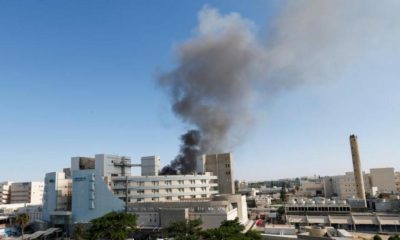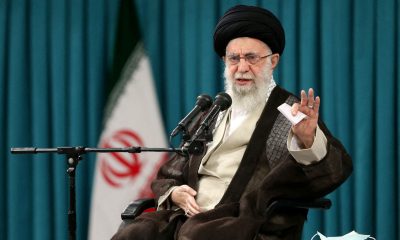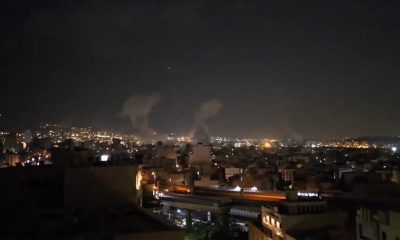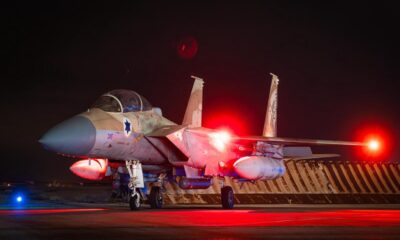Politics
How Israel-Iran War Could Affect Kenya
Kenya’s Trade Minister Rebecca Miano has sounded a warning that the conflict could pose real trade logistical challenges to the country.
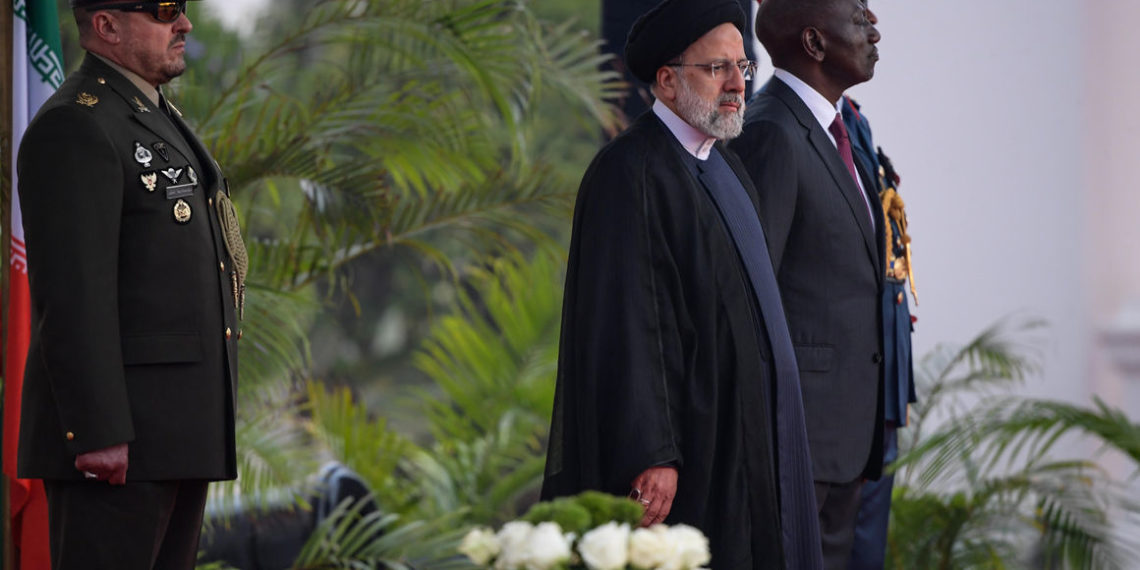
The attack launched on Israel by the Islamic Republic is causing jitters across the globe with many concerned that the it not only posses a threat to the Middle East peace but would escalate to an international security crisis.
Speaking on the matter on Sunday, Kenya’s president William Ruto condemned the incident saying it contravene the UN Charter, “Kenya is deeply concerned by Iran’s attack on the State of Israel. This disturbing development only serves to aggravate an already delicate situation in the Middle East. The attack represents a real and present threat to international peace and security, contravenes the Charter of the United Nations and should be condemned by all peace loving countries.” The president posted on X.
Kenya’s Trade Minister Rebecca Miano has sounded a warning that the conflict could pose real trade logistical challenges to the country.
Ms Rebecca cautioned that the skirmishes in the Middle East could interrupt the free movement of goods and services in Africa, thereby affecting Kenya’s exports and imports from Europe and the Gulf region.
“Most of the effect is the interruption of the supply chain. It is likely to affect the whole of Africa,” said Ms Miano.
Kenya’s top imports, which include refined petroleum, palm oil, wheat, packaged medicaments and cars imported mostly from China, United Arab Emirates, India, Malaysia and Saudi Arabia are likely to be affected logistically.
She cautioned that should matters escalate, then Kenya and her neighbours must start looking for home grown solutions.
“It is a wake-up call and an opportunity for countries to be self-sufficient as much as possible in terms of manufacturing. We must start looking at the strategic commodities that are absolutely necessary the same way we learnt during Covid when we started manufacturing things that we used to import,” said Ms Miano.
Due to the ongoing conflict between Russia and Ukraine, the cost of sea freight immediately went up by $500 on average per container as global trade volumes decreased by 42 per cent, according to a situational report by the United Nations Conference on Trade and Development (UNCTAD) released in March.
Along the Northern corridor, which serves Uganda, South Sudan, Rwanda and the DR Congo, coffee and tea from Uganda and Kenya was in March stuck in warehouses as exporters experienced high cost of sea freight due to increasing demand for vessels.
Apart from the war in the gulf, closer home, the war in eastern Democratic Republic of Congo has affected the flow of goods and services within the East African region.
Iran attack on Israel
Israel Defense Forces spokesperson Daniel Hagari said Sunday that Iran launched more than 300 projectiles toward Israel, including launches from Yemen and Iraq, with 99% intercepted by Israeli air defences outside of Israeli airspace.
The attack on Israel was in retaliation for an April 1 deadly strike on its consulate in the Syrian capital Damascus, which killed senior Iranian commanders.
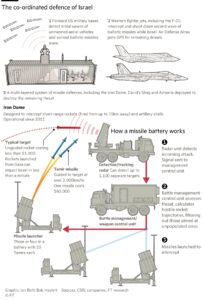
According to the Israeli military, 99% of the more than 300 missiles and drones Iran fired at Israel late on Saturday were intercepted. Here’s how the Jewish state and its allies repelled the attack.
Iran’s Islamic Revolution Guard Corps (IRGC) said the attack was aimed at “specific targets”
Israel has not said it carried out the consulate strike but is widely believed to have been behind it.
Iran’s attack is the first time the country had attacked Israel directly.
The two states had previously been engaged in a years-long shadow war – attacking each other’s assets without admitting responsibility.
Animosity betweem them escalated considerably during the current war in Gaza sparked by Hamas’s assault on nearby Israeli communities October 7.
The two countries were allies until the 1979 Islamic revolution in Iran, which brought in a regime that has opposed Israel as a key part of its ideology.
Iran does not recognise Israel’s right to exist and seeks its eradication to free Palestine.
Supreme leader, Ayatollah Ali Khamenei, has previously called Israel a “cancerous tumour” that “will undoubtedly be uprooted and destroyed”.
US President Joe Biden pledged “ironclad” support in the wake of the missle attacks on Israel saying “We helped Israel take down nearly all” of them.
In an address to the nation, Prime Minister Netanyahu said the military is “ready for any scenario”.
“Our defensive systems are deployed; we are ready for any scenario, both defensively and offensively. The State of Israel is strong. The IDF is strong. The public is strong.”
Netanyahu thanked allies, including the US and UK, for “standing alongside” Israel.
The situation is developing rapidly, with Jordan, Lebanon and Iraq, the three nations located on the likely flight path of the drones having shut their airspace.
Iran and Israel have also closed their airspace to all but military aircraft.
Kenya Insights allows guest blogging, if you want to be published on Kenya’s most authoritative and accurate blog, have an expose, news TIPS, story angles, human interest stories, drop us an email on [email protected] or via Telegram
-

 Business2 weeks ago
Business2 weeks agobetPawa Empire Crumbles: Mr Eazi’s Betting Gambit Unravels Amid Partner’s Shadowy Deals
-

 Business1 week ago
Business1 week agoMinnesota Fraud, Rice Saga, Medical Equipment Deal: Why BBS Mall Owner Abdiweli Hassan is Becoming The Face of Controversial Somali Businessman in Nairobi
-

 News1 week ago
News1 week agoDCI Probes Meridian Equator Hospital After Botched Procedure That Killed a Lawyer
-

 Politics1 week ago
Politics1 week agoYour Excellency! How Ida’s New Job Title From Ruto’s Envoy Job Is Likely to Impact Luo Politics Post Raila
-

 Investigations2 weeks ago
Investigations2 weeks agoEXPOSED: SHA Officials Approve Higher Payments for Family, Friends as Poor Patients Pay Out of Pocket
-

 News1 week ago
News1 week agoKenya Stares At Health Catastrophe As US Abandons WHO, Threatens Billions In Disease Fighting Programmes
-

 Politics2 weeks ago
Politics2 weeks agoJaramogi Clan Tells Raila Jr, Winnie Against Disrespecting Their Uncle Oburu, Warns of Curses
-

 Business2 weeks ago
Business2 weeks agoKRA Boss Humphrey Watanga In Big Trouble In Sh5.5 Billion Rice Import Scandal

